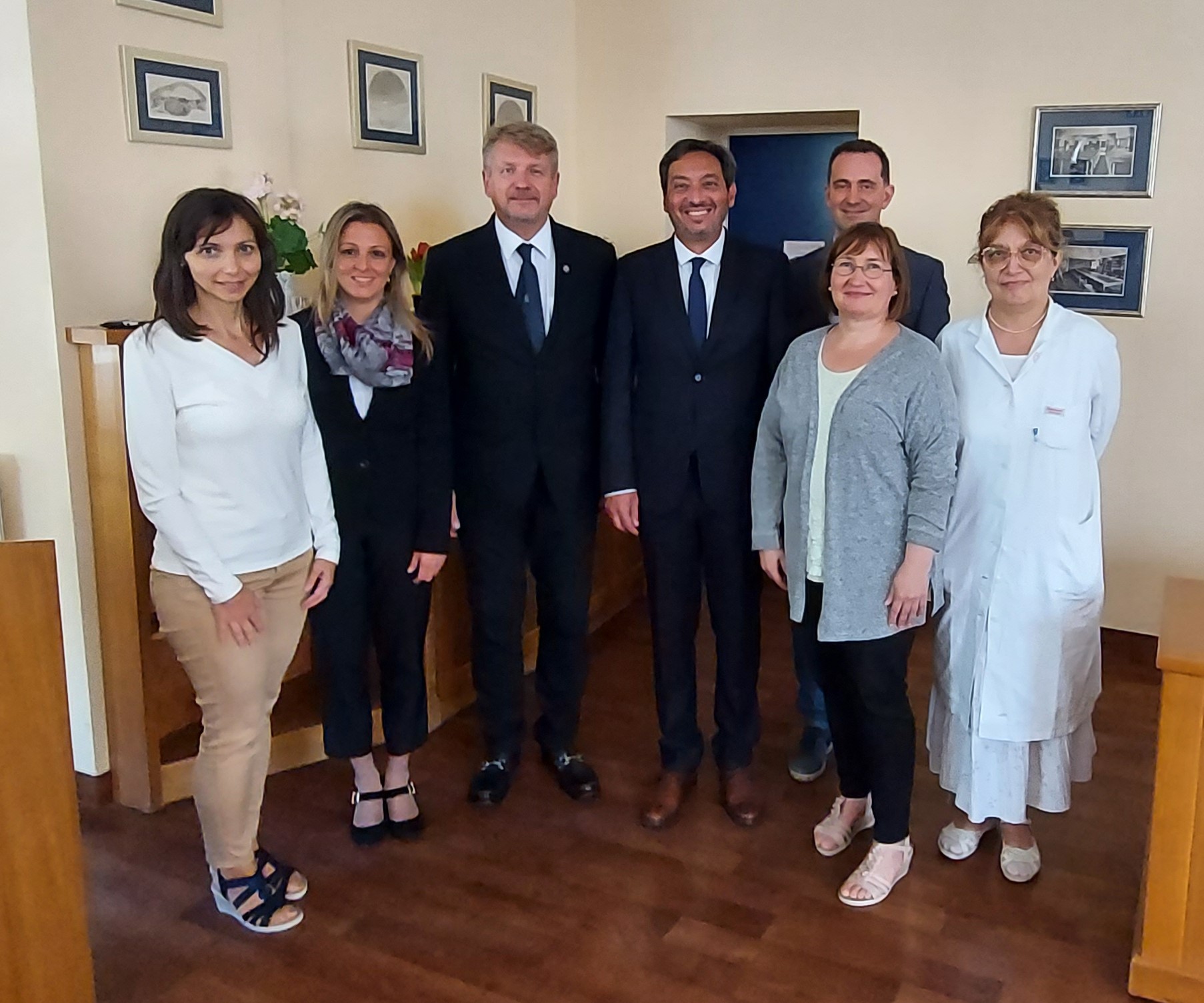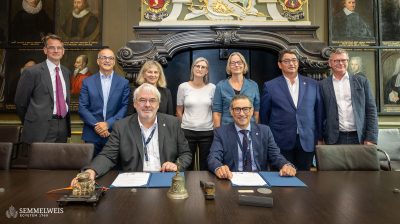Dr. Carlo Rivolta was invited by the Hungarian Society of Pediatric Ophthalmology and Strabismology and the Ophthalmologic Genetics Chapter of the Hungarian Society of Ophthalmology to hold the lecture “Retinal degenerations from a genetic perspective: what the ophthalmologist needs to know” at Semmelweis University’s Department of Ophthalmology. In his presentation he described the heterogeneous genetic background of hereditary retinal diseases, which makes molecular diagnostics difficult. Through family tree analysis he demonstrated that the ratio of asymptomatic individuals carrying latent mutations is high in the European population, which explains the high prevalence of hereditary retinal diseases.
Dr. Carlo Rivolta is a renowned professor of ophthalmologic genetics, previously he conducted research in the field of molecular genetics in the United States, then in Lausanne. Currently he is Head of the Ophthalmologic Genetic Group of the Institute of Molecular and Clinical Ophthalmology Basel (IOB) and professor of the Insitute of Ophthalmic Genetics and Genetic Epidemiology. In addition to optogenetic research, the ophthalmologic research institute founded by Dr. Botond Roska is involved in the genotyping of patients suffering from hereditary retinal dystrophy and other hereditary ophthalmic diseases by using next generation sequencing technology. The ophthalmic genetic group studies rare genotype-phenotype correlations, describes new genes and performs the molecular characterization of new mutations. Dr. Carlo Rivolta also received one of the most prestigious Swiss awards, the Alfred-Vogt Prize in August 2021 for developing new concepts in the genomics of hereditary retinal diseases.
Semmelweis University’s Department of Ophthalmology has been caring for patients suffering from retinal dystrophy for decades, and the data of the long clinical follow-up make an invaluable database for research helping deep phenotyping. The Genetic Working Group of the Department of Ophthalmology is involved in a number of research projects as a collaborative partner of the Institute of Molecular and Clinical Ophthalmology Basel (IOB) in Switzerland.
Source and photo: Department of Ophthalmology
Translation: Ágnes Raubinek


